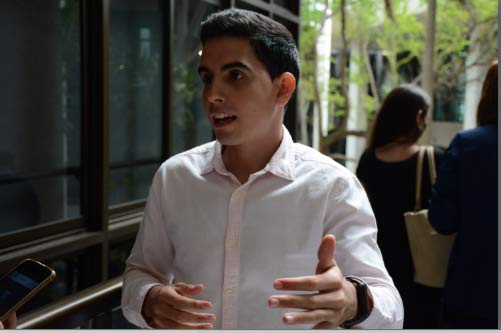In statements to Prensa Latina, the specialist from the Directorate of Economic Stockholders at the Ministry of Economy and Planning (MEP), Daniel Torralba, explained that this initiative is aimed at micro, small and medium-sized enterprises (MSMEs) and ventures.

There is a significant gender gap among the new economic stockholders, the expert emphasized, unlike what happens in the state area, in the private and cooperative sector the same does not happen with the workforce, nor with those who hold management positions or technicians.
Poor female participation in forms of non-state management has various causes, he said, among them, the cultural issue related to the vision of men as entrepreneurs and business owners, and it does not necessarily have to be that way.
It is a situation that partly inhibits women; however, many women are administrators, accountants, economics, and others are the owners of their own business.
Another issue that goes beyond the social or psychological spheres are the roles of caregivers that women play, whether for children, the elderly, or the home, Torralba added.
However, as there are public policies to empower women in the state sector, where they can hold positions of responsibility, it is necessary to advance, in this regard, in the private and cooperative sectors, he reflected.
Today, less than 25 percent of the MSMEs in Cuba are headed by women, a matter to be analyzed, above all, in a country with high gender identity standards and due to all public policies implemented for decades.
It is the State’s way of regulating and empowering those women who today are moving away from the new alternatives that exist in the country’s economy, the expert said.
THE PROJECT
This project resulted from that need, and was developed jointly with the collaboration of the United Nations Development Program (UNDP) and the contribution of the Swedish International Cooperation Agency.
In its essence, it is directed to the strategic priorities of territorial autonomous development with emphasis on women and youths, and covers the provinces of Pinar del Rio, Villa Clara, Holguin and Granma.
The planned roadmap is based on the conception of the incubator of the models that businesses must have and has two fundamental outlets, Torralba remarked.
One aimed at training institutional and government officials who exchange with entrepreneurs, and another aimed at entrepreneurs themselves who require these tools to establish their businesses, he added.
The main thing is to close the gaps and train people because this will translate into more development and more sustainable businesses, a way to avoid the tendency of MSMEs to close too soon, a phenomenon with the same incidence at the international level.
In Cuba, for the most part, MSMEs are established spontaneously, without conscious leadership, since people observe a certain need in the market and take advantage of it, this must be redirected, the expert warned.
They are great challenges that require articulation of all the actors, stressed Torralba, who is also an expert in the politics of economic actors.
To this end, the MEP plans to link up with existing projects with long experience, such as the Articulated Platform for Territorial Development (Padit).
One way to prevent duplicating efforts in the face of a deficit is the need to create a business culture, he asserted.
Women must be nurtured, in this case, with new tools despite the existing services at the university, consultancies, accounting, business management, law firms, because they cannot cope, therefore a conscious articulation is required.
In this regard, Padit is essential as coordinators and implementers with provincial autonomy, that is, they decide what to train depending on the particularities of each place, he summarized.
jg/mem/tdd










